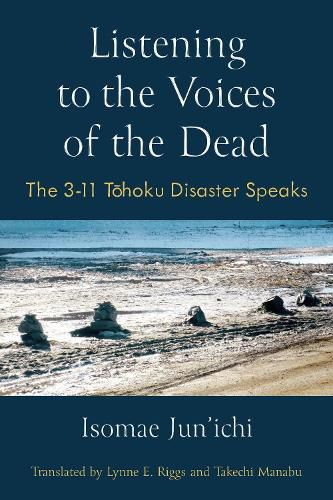Readings Newsletter
Become a Readings Member to make your shopping experience even easier.
Sign in or sign up for free!
You’re not far away from qualifying for FREE standard shipping within Australia
You’ve qualified for FREE standard shipping within Australia
The cart is loading…






Listening to the Voices of the Dead is an account of the author's search for the disquieted voices of the dead in the wake of the March 11, 2011, Tohoku Disaster and his attempt to translate those voices for the living. Isomae Jun'ichi considers the disaster a challenge for outside observers to overcome, especially for practitioners of religion and religious studies. He chronicles the care and devotion for the dead shown by ordinary people, people displaced from their homes and loved ones. Drawing upon religious studies, Japanese history, postcolonial studies, and his own experiences during the disaster, Isomae uncovers historical symptoms brought to the surface by the traumas of disaster. Only by listening to the disquieted voices of the dead, translating them, and responding to them can we regain our true selves as well as offer peace to the spirits of the victims. While Listening to the Voices of the Dead focuses on a specific event in Japanese history and memory, it captures a broadening critique at the heart of many movements responding to how increasing globalization impacts our sense of place and community.
$9.00 standard shipping within Australia
FREE standard shipping within Australia for orders over $100.00
Express & International shipping calculated at checkout
Listening to the Voices of the Dead is an account of the author's search for the disquieted voices of the dead in the wake of the March 11, 2011, Tohoku Disaster and his attempt to translate those voices for the living. Isomae Jun'ichi considers the disaster a challenge for outside observers to overcome, especially for practitioners of religion and religious studies. He chronicles the care and devotion for the dead shown by ordinary people, people displaced from their homes and loved ones. Drawing upon religious studies, Japanese history, postcolonial studies, and his own experiences during the disaster, Isomae uncovers historical symptoms brought to the surface by the traumas of disaster. Only by listening to the disquieted voices of the dead, translating them, and responding to them can we regain our true selves as well as offer peace to the spirits of the victims. While Listening to the Voices of the Dead focuses on a specific event in Japanese history and memory, it captures a broadening critique at the heart of many movements responding to how increasing globalization impacts our sense of place and community.